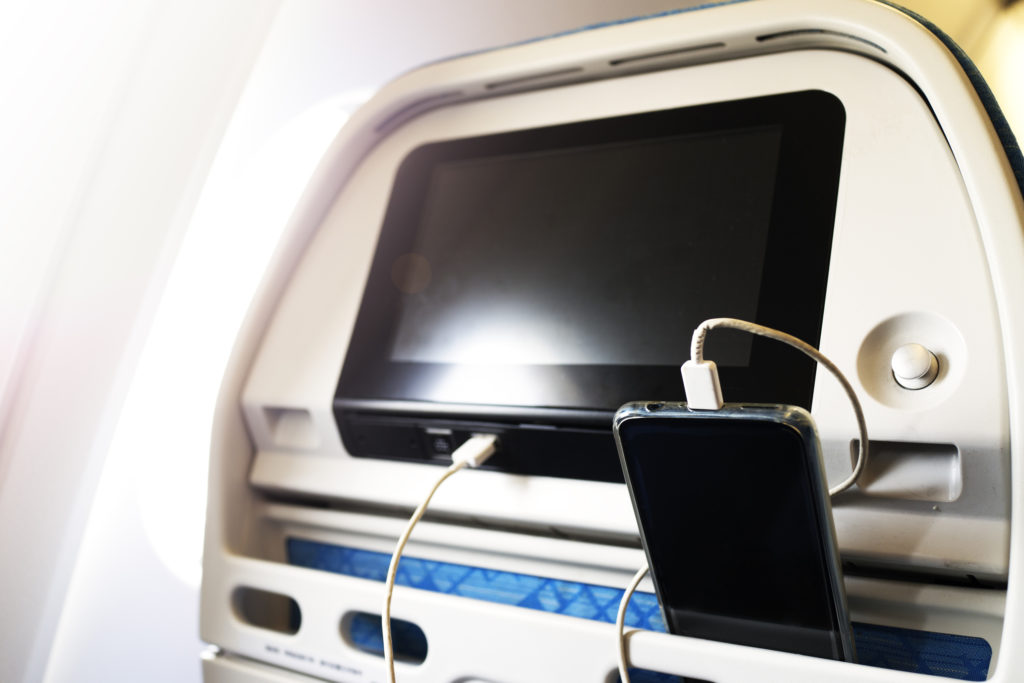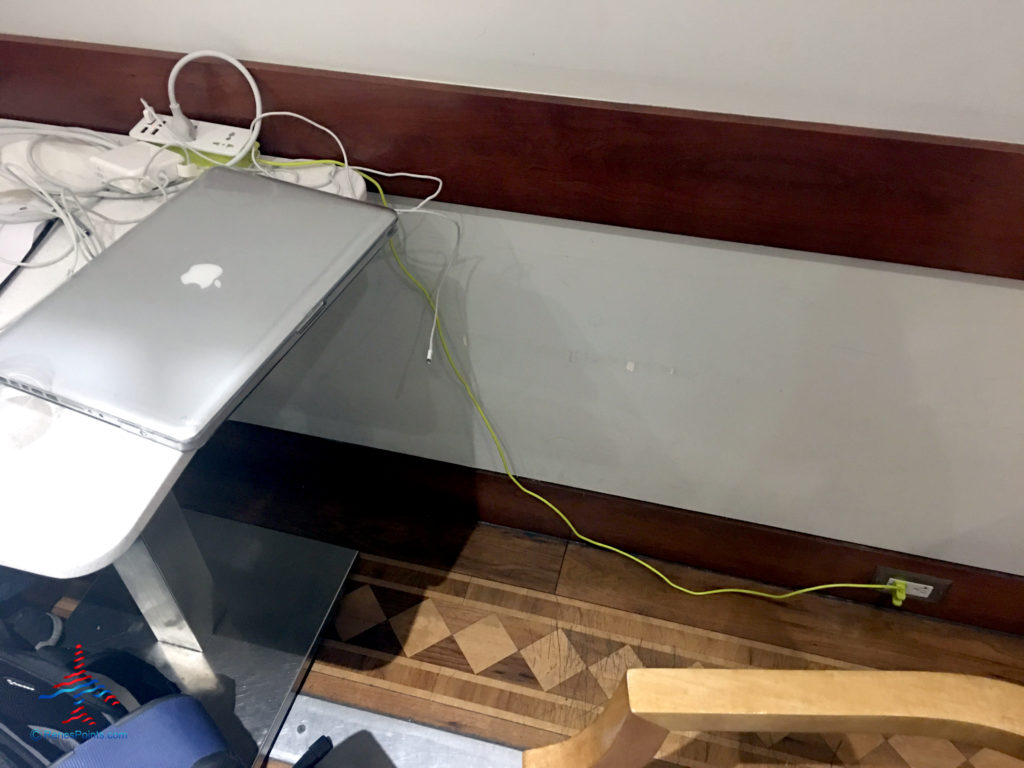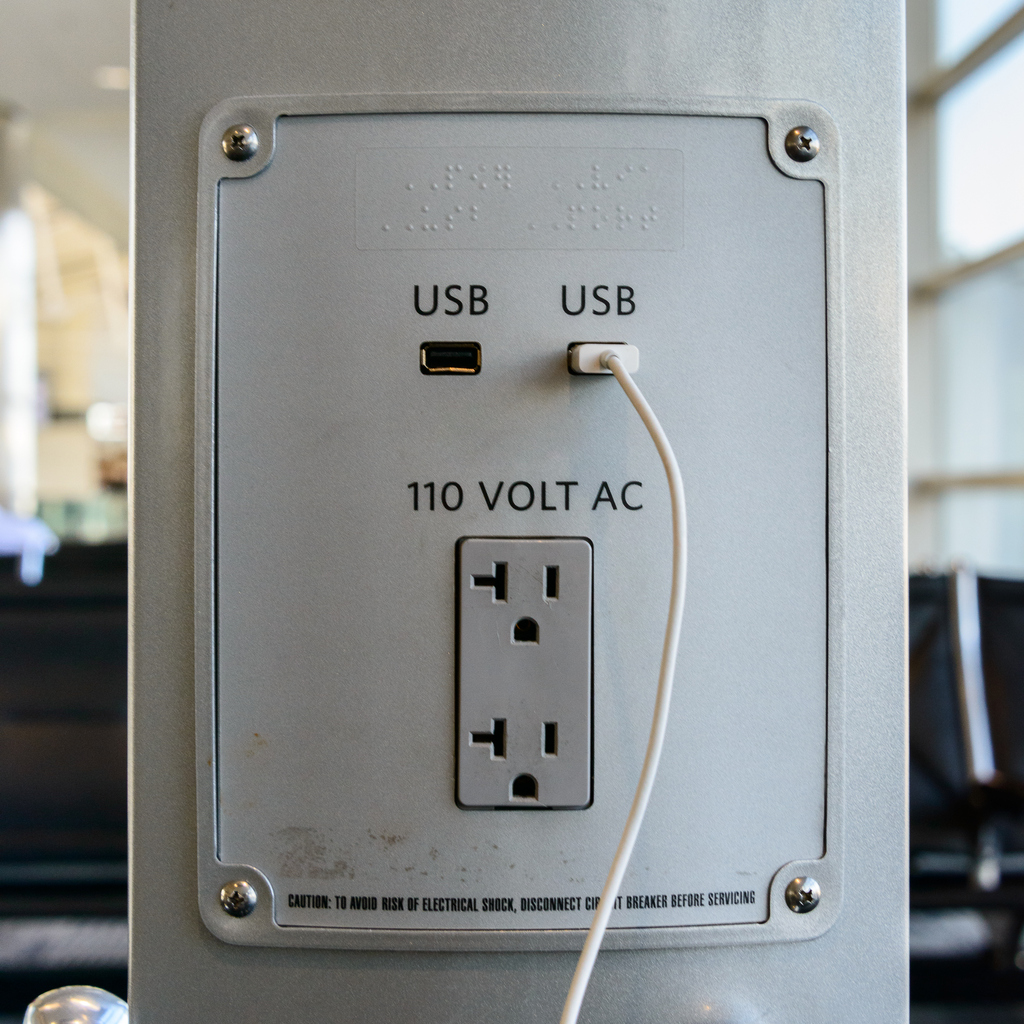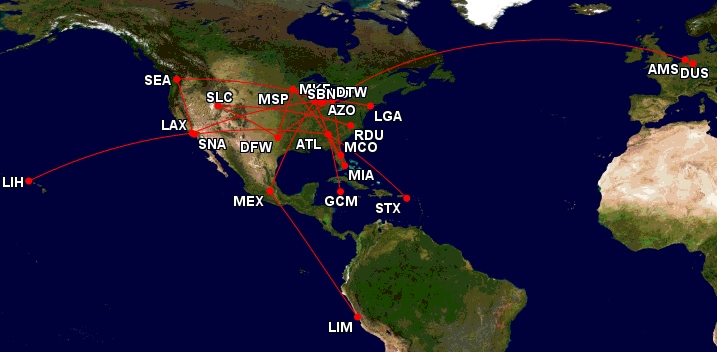Advertiser Disclosure: Eye of the Flyer, a division of Chatterbox Entertainment, Inc., is part of an affiliate sales network and and may earn compensation when a customer clicks on a link, when an application is approved, or when an account is opened. This relationship may impact how and where links appear on this site. This site does not include all financial companies or all available financial offers. Opinions, reviews, analyses & recommendations are the author’s alone, and have not been reviewed, endorsed, or approved by any of these entities. Some links on this page are affiliate or referral links. We may receive a commission or referral bonus for purchases or successful applications made during shopping sessions or signups initiated from clicking those links.
Free USB charging for our mobile devices could prove very costly.
Michael W Travels wrote a post giving travelers a heads-up about “juice jacking.” This nefarious practice involves cyber thieves installing malware into those free USB charging ports we all love (such as at airports). The malware then sucks data — including passwords and other sensitive information — out of the unsuspecting victim’s cell phone or tablet. It may also lock the phone, not allowing the user back in.
Scary, right?
In fact, the Los Angeles County District Attorney’s Office issued a juice jacking warning this past fall.
How Likely Is It to Get Juice Jacked?
“Juice-jacking is a real threat, but it’s an incredibly complicated and imperfect way to attack someone when there are far easier ways,” says TechCrunch’s Zack Whittaker. “The idea, though — that you can plug in your phone and have your secrets stolen — is not entirely far-fetched.”

Snopes adds, “Safety features have been added to iOS and Android operating systems in order to combat this sort of crime. Furthermore, little evidence exists that juice jacking is a widespread problem.”
There have been unconfirmed reports of juice jacking on the East Coast and Washington, D.C., Malwarebytes notes.
So even if it’s not widespread, it certainly stinks to be one of the few (allegedly) bitten by the juice jacking bug.
What Options Do You Have?
Take Your Chances
This sounds like one of those Oh, it will never happen to me things. And hopefully, it won’t.
Use AC Power
Pack an extra AC to USB plug you can stick into an electrical outlet. You’ll probably get a better, faster charge anyway.

When traveling with my family or work colleagues, it comes in especially handy. We can plug in two laptops and four devices.
Portable Battery / External Charger
A portable battery or external charger is already a must-have for most travelers. (Especially those who fly Southwest or ride CRJ-200s — which don’t have power outlets.)
Are You Worried About Juice Jacking?
While the LA County DA said they had no juice jacking cases. Still, the possibility it can happen is a bit frightening — and one more thing of which we travelers must be wary.
— Chris
Featured image: ©iStock.com/Burachet
Advertiser Disclosure: Eye of the Flyer, a division of Chatterbox Entertainment, Inc., is part of an affiliate sales network and and may earn compensation when a customer clicks on a link, when an application is approved, or when an account is opened. This relationship may impact how and where links appear on this site. This site does not include all financial companies or all available financial offers. Opinions, reviews, analyses & recommendations are the author’s alone, and have not been reviewed, endorsed, or approved by any of these entities. Some links on this page are affiliate or referral links. We may receive a commission or referral bonus for purchases or successful applications made during shopping sessions or signups initiated from clicking those links.











If you have an iOS device and you plug into any public USB jack, just say NO when prompted “Trust this computer?”
And Chris (the author) is right- you’ll get a faster charge by plugging into an AC USB charger. Get a charger that lights up with LED lights so you can tell if you’ve plugged into a good outlet or not.
And as the L.A. DA said, no cases have been reported and as a matter of fact, no case has been reported ANYWHERE of this happening. It’s all so much hype.
You should worry more about getting hit by lightening than juice jacking.
@Patrick: Yep. I noted that and the fact there have been some unconfirmed reports. But those could be the real thing — or people who don’t know how to use their devices…
If you’re worried about this (I’m not) you can buy a USB data blocker. The USB plug has four wires, two for power and two for data. The data blocker (which plugs onto the end of your USB cord) just connects the two power wires (it’s about $7 on Amazon & other places).
Another case of people who have no idea about security but thinks they know it all and create public frenzy. Hint: Press and Media falls directly here.
Unless your device is previously hacked, no one can access your device without your permission. If you ever use public wifi, you run a much greater risk being hacked.